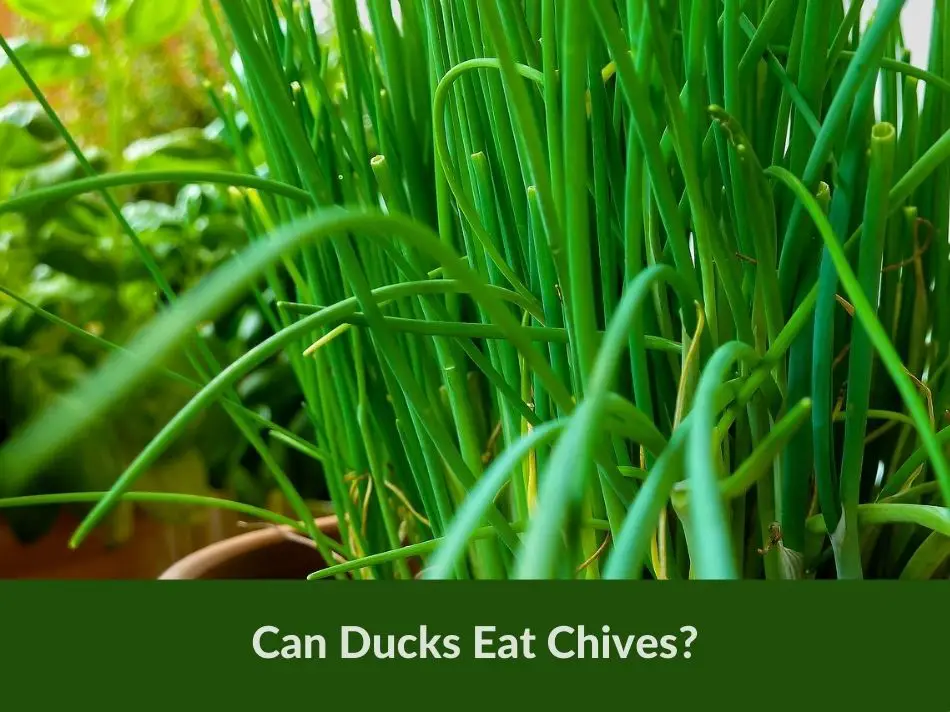Ducks, those delightful denizens of the pond, primarily feast on a smorgasbord of aquatic goodies. From water plants to tiny insects, snails, and even small fish, their diet is as varied as the ripples on a pond. Venturing onto land, they’re often seen nibbling on grass, grains, and seeds. But, can ducks eat chives?
No, ducks can’t eat chives because they contain a high amount of thiosulfate, which is very toxic for ducks. The thiosulfate can cause hemolytic anemia.
In this article, we delve into the risks associated with ducks consuming chives. Specifically, we explore the compound thiosulfate, found in chives, which has harmful effects on ducks.
Understanding Thiosulfate
Thiosulfate is a compound found in certain plants, notably in the Allium family, which includes onions, garlic, leeks, and yes, chives. In many animals, including ducks, the ingestion of thiosulfate can lead to a condition known as oxidative hemolysis.
This is when the red blood cells are damaged, leading them to burst and causing a decrease in the number of red blood cells, a condition known as hemolytic anemia.
Why is Thiosulfate Harmful to Ducks?
When ducks consume chives, the thiosulfate present interferes with their red blood cells’ ability to carry oxygen. The substance does this by damaging hemoglobin—the molecule in red blood cells responsible for oxygen transport.
As a result, ducks that consume a significant amount of chives or other thiosulfate-rich foods may experience symptoms like lethargy, weakness, rapid breathing, and even a change in the color of their gums and tongue, turning them bluish due to oxygen deprivation.
What Amount is Dangerous?
The toxicity level varies among individual ducks, depending on factors like age, overall health, and the amount consumed. While small amounts might not show immediate adverse effects, it’s essential to understand that thiosulfate compounds can accumulate over time.
This means that even repeated small exposures can eventually lead to toxicity.
Chives Nutritional Value
Below is the nutritional value of 100 grams of chives.
- Calories: 30 kcal
- Carbohydrates: 4.35 g
- Protein: 3.27 g
- Dietary Fiber: 2.5 g
It also contains several vitamins and minerals as listed below.
- Vitamin K
- Vitamin C
- Folate
- Vitamin A
- Calcium
- potassium
Other Vegetables Ducks Can Eat
Ducks are surprisingly versatile eaters and have been known to enjoy a diverse array of vegetables. From the vibrant hues of bell peppers to the leafy goodness of broccoli, ducks often benefit from the nutrients these veggies offer. Below are some more veggies ducks can eat.
Conclusion
While chives might be a delightful addition to our culinary dishes, they are certainly not suitable for ducks. Thiosulfate, though not harmful to humans in the quantities found in foods, poses a genuine threat to the health and well-being of ducks.
Disclaimer: The information in this article is for informational purposes only. I'm not an expert or a veterinarian.


